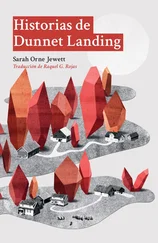Sarah Orne Jewett - The Country of the Pointed Firs
Здесь есть возможность читать онлайн «Sarah Orne Jewett - The Country of the Pointed Firs» — ознакомительный отрывок электронной книги совершенно бесплатно, а после прочтения отрывка купить полную версию. В некоторых случаях можно слушать аудио, скачать через торрент в формате fb2 и присутствует краткое содержание. Жанр: foreign_sf, foreign_antique, foreign_prose, на английском языке. Описание произведения, (предисловие) а так же отзывы посетителей доступны на портале библиотеки ЛибКат.
- Название:The Country of the Pointed Firs
- Автор:
- Жанр:
- Год:неизвестен
- ISBN:нет данных
- Рейтинг книги:4 / 5. Голосов: 1
-
Избранное:Добавить в избранное
- Отзывы:
-
Ваша оценка:
- 80
- 1
- 2
- 3
- 4
- 5
The Country of the Pointed Firs: краткое содержание, описание и аннотация
Предлагаем к чтению аннотацию, описание, краткое содержание или предисловие (зависит от того, что написал сам автор книги «The Country of the Pointed Firs»). Если вы не нашли необходимую информацию о книге — напишите в комментариях, мы постараемся отыскать её.
The Country of the Pointed Firs — читать онлайн ознакомительный отрывок
Ниже представлен текст книги, разбитый по страницам. Система сохранения места последней прочитанной страницы, позволяет с удобством читать онлайн бесплатно книгу «The Country of the Pointed Firs», без необходимости каждый раз заново искать на чём Вы остановились. Поставьте закладку, и сможете в любой момент перейти на страницу, на которой закончили чтение.
Интервал:
Закладка:
Sarah Orne Jewett
The Country of the Pointed Firs
SARAH ORNE JEWETT (1849-1909) was born and died in South Berwick, Maine. Her father was the region’s most distinguished doctor and, as a child, Jewett often accompanied him on his round of patient visits. She began writing poetry at an early age and when she was only 19 her short story “Mr. Bruce” was accepted by the Atlantic Monthly. Her association with that magazine continued, and William Dean Howells, who was editor at that time, encouraged her to publish her first book, Deephaven (1877), a collection of sketches published earlier in the Atlantic Monthly. Through her friendship with Howells, Jewett became acquainted with Boston’s literary elite, including Annie Fields, with whom she developed one of the most intimate and lasting relationships of her life.
The Country of the Pointed Firs (1896) is considered Jewett’s finest work, described by Henry James as her “beautiful little quantum of achievement.” Despite James’s diminutives, the novel remains a classic. Because it is loosely structured, many critics view the book not as a novel, but a series of sketches; however, its structure is unified through both setting and theme. Jewett herself felt that her strengths as a writer lay not in plot development or dramatic tension, but in character development. Indeed, she determined early in her career to preserve a disappearing way of life, and her novel can be read as a study of the effects of isolation and hardship on the inhabitants who lived in the decaying fishing villages along the Maine coast.
Jewett died in 1909, eight years after an accident that effectively ended her writing career. Her reputation had grown during her lifetime, extending far beyond the bounds of the New England she loved.
I. The Return
THERE WAS SOMETHING about the coast town of Dunnet which made it seem more attractive than other maritime villages of eastern Maine. Perhaps it was the simple fact of acquaintance with that neighborhood which made it so attaching, and gave such interest to the rocky shore and dark woods, and the few houses which seemed to be securely wedged and tree-nailed in among the ledges by the Landing. These houses made the most of their seaward view, and there was a gayety and determined floweriness in their bits of garden ground; the small-paned high windows in the peaks of their steep gables were like knowing eyes that watched the harbor and the far sea-line beyond, or looked northward all along the shore and its background of spruces and balsam firs. When one really knows a village like this and its surroundings, it is like becoming acquainted with a single person. The process of falling in love at first sight is as final as it is swift in such a case, but the growth of true friendship may be a lifelong affair.
After a first brief visit made two or three summers before in the course of a yachting cruise, a lover of Dunnet Landing returned to find the unchanged shores of the pointed firs, the same quaintness of the village with its elaborate conventionalities; all that mixture of remoteness, and childish certainty of being the centre of civilization of which her affectionate dreams had told. One evening in June, a single passenger landed upon the steamboat wharf. The tide was high, there was a fine crowd of spectators, and the younger portion of the company followed her with subdued excitement up the narrow street of the salt-aired, white-clapboarded little town.
II. Mrs. Todd
LATER, THERE WAS only one fault to find with this choice of a summer lodging-place, and that was its complete lack of seclusion. At first the tiny house of Mrs. Almira Todd, which stood with its end to the street, appeared to be retired and sheltered enough from the busy world, behind its bushy bit of a green garden, in which all the blooming things, two or three gay hollyhocks and some London-pride, were pushed back against the gray-shingled wall. It was a queer little garden and puzzling to a stranger, the few flowers being put at a disadvantage by so much greenery; but the discovery was soon made that Mrs. Todd was an ardent lover of herbs, both wild and tame, and the sea-breezes blew into the low end-window of the house laden with not only sweet-brier and sweet-mary, but balm and sage and borage and mint, wormwood and southernwood. If Mrs. Todd had occasion to step into the far corner of her herb plot, she trod heavily upon thyme, and made its fragrant presence known with all the rest. Being a very large person, her full skirts brushed and bent almost every slender stalk that her feet missed. You could always tell when she was stepping about there, even when you were half awake in the morning, and learned to know, in the course of a few weeks’ experience, in exactly which corner of the garden she might be.
At one side of this herb plot were other growths of a rustic pharmacopoeia, great treasures and rarities among the commoner herbs. There were some strange and pungent odors that roused a dim sense and remembrance of something in the forgotten past. Some of these might once have belonged to sacred and mystic rites, and have had some occult knowledge handed with them down the centuries; but now they pertained only to humble compounds brewed at intervals with molasses or vinegar or spirits in a small caldron on Mrs. Todd’s kitchen stove. They were dispensed to suffering neighbors, who usually came at night as if by stealth, bringing their own ancient-looking vials to be filled. One nostrum was called the Indian remedy, and its price was but fifteen cents; the whispered directions could be heard as customers passed the windows. With most remedies the purchaser was allowed to depart unadmonished from the kitchen, Mrs. Todd being a wise saver of steps; but with certain vials she gave cautions, standing in the doorway, and there were other doses which had to be accompanied on their healing way as far as the gate, while she muttered long chapters of directions, and kept up an air of secrecy and importance to the last. It may not have been only the common aids of humanity with which she tried to cope; it seemed sometimes as if love and hate and jealousy and adverse winds at sea might also find their proper remedies among the curious wild-looking plants in Mrs. Todd’s garden.
The village doctor and this learned herbalist were upon the best of terms. The good man may have counted upon the unfavorable effect of certain potions which he should find his opportunity in counteracting; at any rate, he now and then stopped and exchanged greetings with Mrs. Todd over the picket fence. The conversation became at once professional after the briefest preliminaries, and he would stand twirling a sweet-scented sprig in his fingers, and make suggestive jokes, perhaps about her faith in a too persistent course of thoroughwort elixir, in which my landlady professed such firm belief as sometimes to endanger the life and usefulness of worthy neighbors.
To arrive at this quietest of seaside villages late in June, when the busy herb-gathering season was just beginning, was also to arrive in the early prime of Mrs. Todd’s activity in the brewing of old-fashioned spruce beer. This cooling and refreshing drink had been brought to wonderful perfection through a long series of experiments; it had won immense local fame, and the supplies for its manufacture were always giving out and having to be replenished. For various reasons, the seclusion and uninterrupted days which had been looked forward to proved to be very rare in this otherwise delightful corner of the world. My hostess and I had made our shrewd business agreement on the basis of a simple cold luncheon at noon, and liberal restitution in the matter of hot suppers, to provide for which the lodger might sometimes be seen hurrying down the road, late in the day, with cunner line in hand. It was soon found that this arrangement made large allowance for Mrs. Todd’s slow herb-gathering progresses through woods and pastures. The spruce-beer customers were pretty steady in hot weather, and there were many demands for different soothing syrups and elixirs with which the unwise curiosity of my early residence had made me acquainted. Knowing Mrs. Todd to be a widow, who had little beside this slender business and the income from one hungry lodger to maintain her, one’s energies and even interest were quickly bestowed, until it became a matter of course that she should go afield every pleasant day, and that the lodger should answer all peremptory knocks at the side door.
Читать дальшеИнтервал:
Закладка:
Похожие книги на «The Country of the Pointed Firs»
Представляем Вашему вниманию похожие книги на «The Country of the Pointed Firs» списком для выбора. Мы отобрали схожую по названию и смыслу литературу в надежде предоставить читателям больше вариантов отыскать новые, интересные, ещё непрочитанные произведения.
Обсуждение, отзывы о книге «The Country of the Pointed Firs» и просто собственные мнения читателей. Оставьте ваши комментарии, напишите, что Вы думаете о произведении, его смысле или главных героях. Укажите что конкретно понравилось, а что нет, и почему Вы так считаете.












